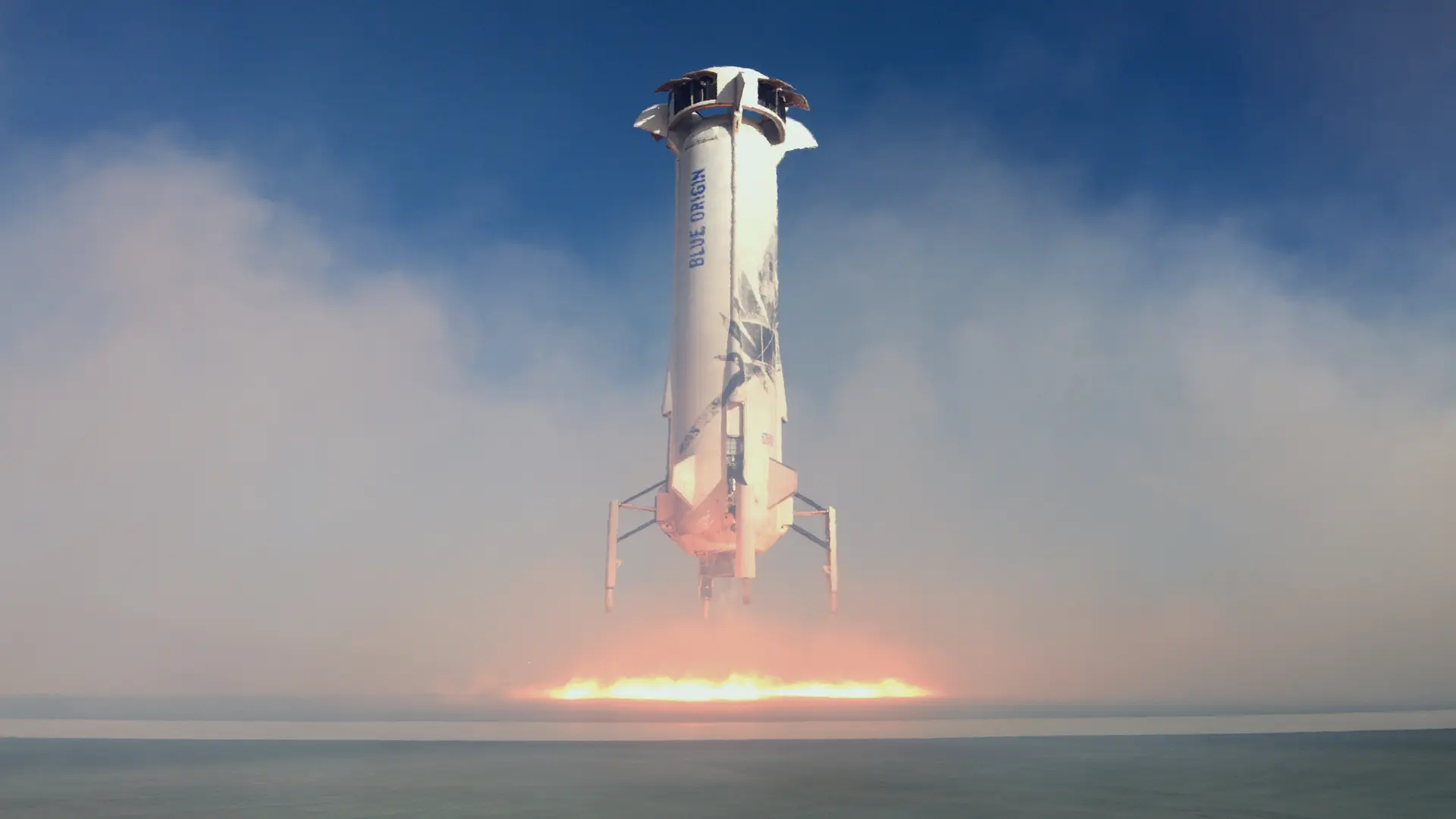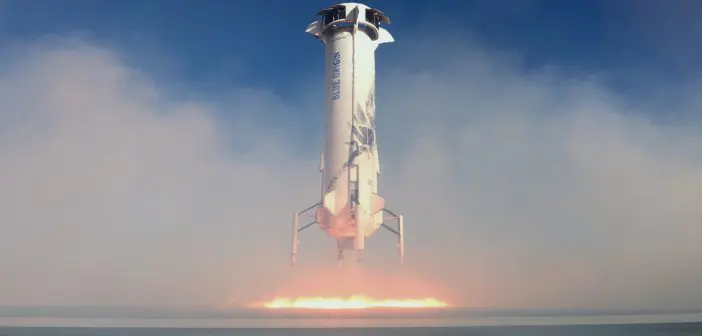
Jeff Bezos’s space exploration business, Blue Origin, has resumed its space tourism flights after a two-year break. On May 19, 2024, the company successfully completed its seventh human spaceflight and the 25th flight for the New Shepard program. The flight was the first since September 2022, when an inflight anomaly saw the New Shepard launches suspended.
The weekend’s flight, officially NS-25, took six people just above the Kármán line, travelling high enough for them to briefly experience weightlessness before safely parachuting back to Earth. The reusable booster rocket also returned without incident, landing upright just a few minutes after takeoff.
New Shepard is a fully reusable suborbital launch vehicle specifically targeting the space tourism market. However, it wasn’t until the type’s 16th flight, NS-16, in July 2021 that paying passengers were carried into space by Blue Origin. Aside from Jeff Bezos, one passenger had paid USD28 million for a seat on that flight, which, due to unforeseen circumstances, he could not travel on. Total flight time is usually around 10 – 15 minutes.
Onboard this weekend’s flight was former Air Force Captain Ed Dwight, now 91. In 1961, President John F. Kennedy selected him as an astronaut candidate, but he never had the opportunity to fly. He described the brief flight as “fabulous.” Thirty-seven people have now travelled into space on New Shepard flights. New Shepherd’s pressurized crew capsule can carry six people.
After the spacecraft’s return, official stats released by Blue Origin said the crew capsule and booster reached an apogee of 107 kilometres above sea level. The launch was at approximately 09.35 local time (00.30 AEDT May 20).
Blue Origin had a lot riding on the successful outcome of NS-25 after an uncrewed New Shepherd NS-23 mission in September 2022 experienced “an anomaly” due to a failure of the liquid oxygen and hydrogen BE-3PM main engine. The failure triggered the launch escape system, and the capsule returned safely. However, it also sparked a Federal Aviation Administration investigation and the immediate suspension of New Shepherd flights.
In March 2023, Blue Origin identified the anomaly’s cause as a thermo-structural failure of the engine nozzle. This caused a thrust misalignment that activated the capsule’s emergency escape system.
In December 2023, Blue Origin successfully operated the uncrewed NS-24 flight, which ferried 33 largely promotional payloads from NASA, academia, research institutions, and commercial companies briefly into orbit.
Blue Origin hopes to become a serious competitor to SpaceX, which, as of May 8, had sent 24 rockets into space so far this year.
Blue Origin also intends to conduct the maiden launch of its reusable heavy-lift orbital launch vehicle, Blue Glenn, later this year. The company plans to offer both single-payload dedicated flights and, after the fifth launch, dual-manifesting of large communications satellites transported into geostationary transfer orbit.
Blue Origin is also working with NASA on their project to return humans to the Moon later this decade.
Blue Origin has yet to give a date for its next planned New Shepherd flight, NS-26.





